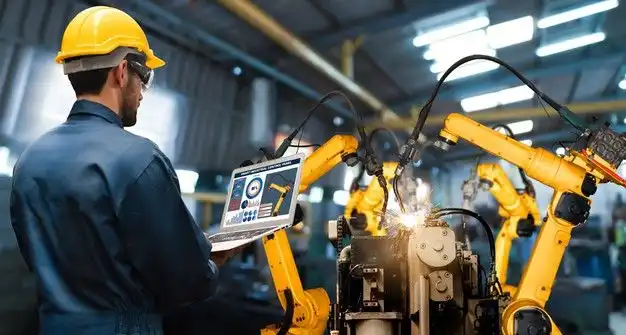Why CNC Training Programs Are Crucial for the Future of Manufacturing
Introduction As the global manufacturing industry embraces automation, multi-axis CNC machining, and smart factories, the demand for highly skilled CNC operators and programmers is growing exponentially. Companies are increasingly investing in CNC training programs to bridge the skills gap, ensure workforce adaptability, and drive industry innovation.

- Addressing the Skills Gap in CNC Machining With the rapid advancement of 5-axis CNC machines, hybrid manufacturing, and IoT-enabled smart machining, traditional training methods are no longer sufficient. Modern CNC training programs provide: Hands-on experience with advanced CNC machines CAD/CAM software proficiency for digital manufacturing Real-time troubleshooting skills to minimize downtime Industry Insight: Over 70% of manufacturers face difficulties in hiring skilled CNC operators due to the lack of proper training facilities.

- CNC Training: A Gateway to High-Paying Jobs CNC machinists are in high demand, with salaries growing by 15-20% in the last five years. Skilled CNC operators can find employment in industries like: Aerospace & Defense Automotive Manufacturing Medical Device Production Industrial Equipment Manufacturing

Key Statistic: The global CNC machine market is expected to reach $132 billion by 2026, further increasing job opportunities in this sector.
-
Industry 4.0 & The Need for CNC Digital Training The Industry 4.0 revolution has introduced AI-driven CNC software, robotic automation, and real-time monitoring into machining processes. Modern CNC training programs must evolve to include: AI-powered CNC programming techniques Digital twin technology for real-time simulation Advanced CNC automation & lights-out manufacturing
-
Government Initiatives & Skill Development Programs Governments worldwide are promoting CNC training through subsidies and industrial skill development programs. Emerging economies like India, Vietnam, and Brazil are establishing CNC training hubs to boost their manufacturing sectors. Government-funded vocational training centers Industry collaborations for hands-on apprenticeship programs Incentives for companies investing in workforce upskilling Case Study: India’s Skill India Initiative has trained over 100,000 CNC operators, strengthening its position as a global manufacturing hub.

- CNC Training for Sustainable Manufacturing Sustainability is a major concern in manufacturing. CNC training programs now emphasize eco-friendly machining techniques, such as: Energy-efficient machine operation Water-based coolant usage Metal chip recycling & waste reduction With CNC sustainability becoming a global focus, trained operators are needed to implement energy-saving machining processes in industries worldwide. Conclusion As the CNC industry advances, investing in structured CNC training programs is no longer optional—it’s essential. Companies that prioritize workforce training will lead the future of precision manufacturing, automation, and sustainable machining. Sahil Machines is at the forefront of CNC innovation, providing high-precision solutions and industry insights. Visit us: www.sahilcnc.com Inquiries: info@sahilcnc.com Follow Sahil Machines for the latest CNC industry updates!



































Get in touch with us about anything.
Connect with our team to explore the alloy solutions and machinery expertise you need.

